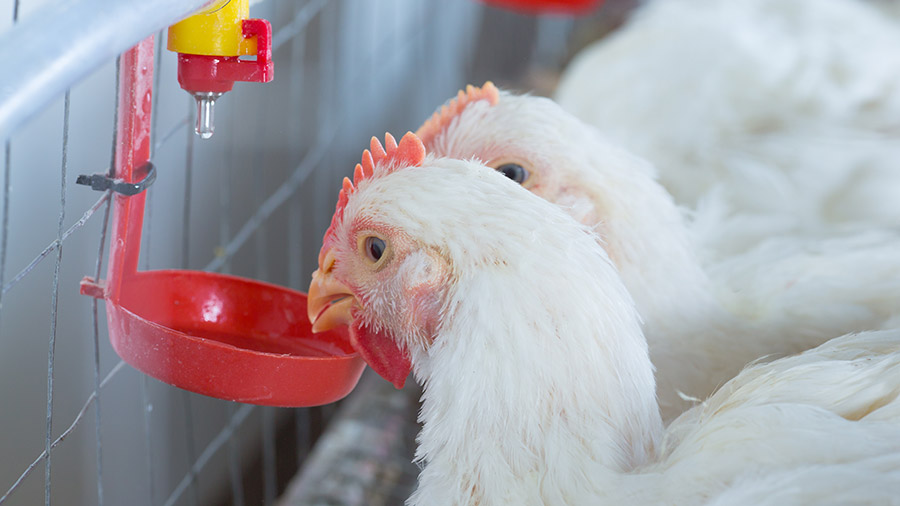The initiative helping poultry farms attract and retain staff
 © AdobeStock/Andrey
© AdobeStock/Andrey Finding staff for Lindsey and Paul Wedgewood’s poultry unit has been difficult amid Brexit labour shortages and post-Covid disruption.
The couple, who farm near Tholthorpe, north of York, have 210,000 broilers which are processed at Iqbal Poultry near Doncaster.
Talking to others in the poultry industry reveals that getting reliable staff is difficult, says Mrs Wedgewood.
She is keen to address the issue through her role as head of apprenticeships at Askham Bryan College, near York.
“In my work at Askham Bryan, it is clear a lot of potential apprentices think about other types of agriculture but not the poultry sector. As an industry, we are not doing enough to promote it,” she says.
But there are lots of good opportunities and the potential to progress to management more quickly than in other sectors.
In a bid to improve the situation, Mrs Wedgewood has taken on a role as a “Cultivator” for the Institute for Agriculture and Horticulture (Tiah).
Tiah has set up a website that will ultimately act as a portal for training and career development, with a register that allows individuals to store records and certificates.
The role of Cultivators
Cultivators help to develop the site so that it can achieve its potential and ensure it offers a glitch-free experience.
Being a Cutivator is a good opportunity to find out more about Tiah, says Mrs Wedgewood. “I would encourage people in the industry to sign up and take part.”
Cultivators get a sneak peek into Tiah’s product development process, evaluate upcoming features and give feedback. The organisation says this will take up 20 minutes once a month, testing, reviewing and sharing thoughts.
“Employers can get involved in shaping what the institute should look like and do. We are putting together careers information and it is exciting to have it all on one website,” Mrs Wedgewood says.
Addressing the pay issue
Many misconceptions remain about what working in the agricultural sector involves, she says. “A lot of people think it is long hours, low pay and unskilled.
“This may have been the case 30 years ago but now a lot of technical skills are required and there are financial rewards for people prepared to do the work.”
However, pay remains a thorny issue, not helped by the loss of the Agricultural Wages Order, explains Mrs Wedgewood.
“Employers don’t know where to benchmark. Workers need and want more than the minimum wage, but there is no structure and they must negotiate themselves. Meanwhile, employers don’t know what they’re competing against.
“Having access to that sort of information would be really useful and we are looking at it in some of the Tiah Cultivator programme pilots.”
Tiah is also compiling a training directory that would enable people to see what types of training are on offer, she says.
Training needs have changed. It is no longer just about basic skills for 16- and 17-year-olds, it is evolving all the time, Mrs Wedgewood adds.
“Farm assurance schemes expect farmers to be doing continuous professional development. It would be good if they could find courses which benefited their farm business as well as just the mandatory training,” she explains.
There is also interest from older workers in retraining. “They could take on an apprenticeship, but if they’ve already had a higher paid job in a different sector they’re unlikely to want to drop to a training role.”
What does Tiah do?
- Gathers labour market data and information on skills gaps to influence policy and education
- Develops a competency-based framework and professional register to define changing skills and knowledge to inform educators, recruiters and workers
- Provides signposting for careers, skills and knowledge
- Identifies innovative farming practices and new regulations to help people keep abreast of change
How to apply to become a Cultivator
- Click the Join Now button on the Tiah website to register
- Contact Jasmin on 0330 174 4290
- Email info@tiah.org
